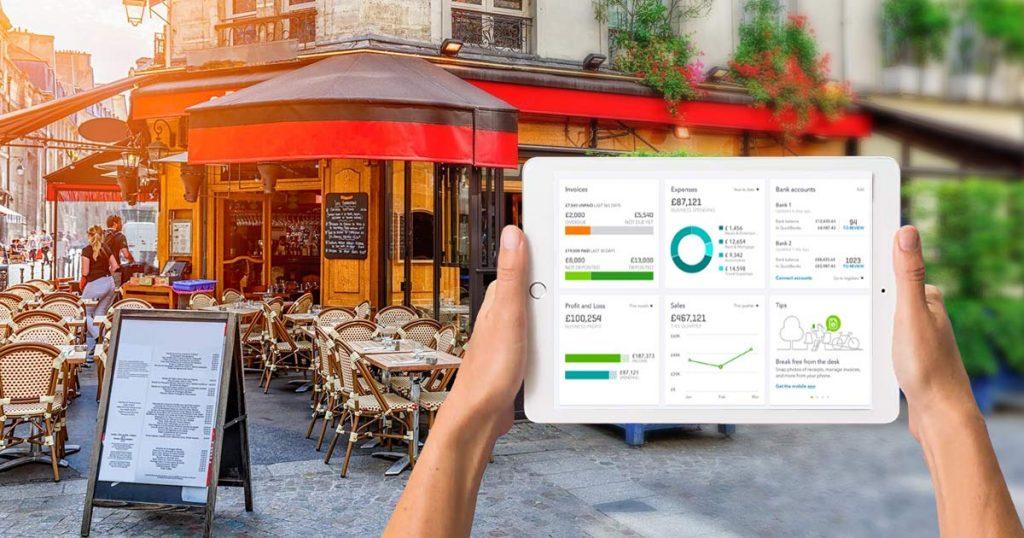Running a small restaurant comes with unique financial demands that standard accounting tools might not cover. That’s why specialized software can be a game-changer, bringing efficiency to expense tracking, payroll, and financial planning. This guide explores some of the best accounting solutions to help you choose the right tool that suits your small restaurant’s needs.
9 of the Best Small Restaurant Accounting Software
Here’s a closer look at the accounting tools that can make managing your small restaurant’s finances a lot easier. From specialized restaurant software to general accounting options, each of these has its own strengths.
Restaurant365
Restaurant365 is designed specifically for the food industry. It offers robust accounting features like inventory management, recipe costing, and vendor management, making it an excellent choice for small restaurants. With integrations for popular POS systems, payroll software, and ordering systems, Restaurant365 helps streamline operational tasks. Although priced higher, it’s well-suited for those needing comprehensive inventory and vendor management.
QuickBooks Online
QuickBooks Online is widely popular among small businesses, including restaurants, due to its flexible features and affordability. It integrates smoothly with many POS systems and allows for tracking income, expenses, and class/location-based profit tracking. QuickBooks Online is ideal for small to mid-sized restaurants and cafes, offering an intuitive design and a range of accounting features.
Food Service Ace
Food Service Ace is another restaurant-specific software focusing on food cost management and inventory. It offers unique tools like recipe costing and inventory valuation, which are essential for small restaurants looking to optimize food spending. It may not have as broad a feature set as some others, but it’s an affordable and functional choice for restaurants prioritizing inventory control and cost efficiency.
ZipBooks
ZipBooks is a straightforward and affordable accounting option with a free basic plan. It’s ideal for startups needing essential features like invoicing, expense tracking, and financial reporting. While it lacks advanced restaurant-specific features, it integrates well with other tools, making it easy to customize for a small restaurant’s needs. ZipBooks’ simplicity and accessible pricing make it a good choice for small teams.
Plate IQ
Plate IQ specializes in invoice processing, which is particularly helpful for restaurants with a high volume of vendor transactions. It automates data entry and categorizes expenses, making it easier to manage accounts payable. Though it’s more targeted at invoice management than full accounting, Plate IQ is a practical supplement for those looking to streamline their vendor payments and improve expense visibility.
DAVO
DAVO is designed to simplify the process of managing and filing sales tax. This can be a time-saver for restaurant owners who find tax filing to be a challenge. DAVO automatically sets aside the tax amount daily and submits it to the state on your behalf. While DAVO isn’t a full-fledged accounting solution, it’s an excellent add-on for tax compliance.
Wave
Wave is a free accounting solution offering a solid range of features, from invoicing to expense tracking. Although it lacks advanced restaurant-specific features, Wave is a viable choice for small, budget-conscious restaurants needing core accounting functions. For additional services like payroll, Wave offers paid add-ons, making it adaptable to changing needs.
MarginEdge
MarginEdge focuses on helping restaurants streamline back-office operations. It connects with many POS systems and simplifies accounting by managing invoices, tracking inventory, and providing insights into food costs. It’s more expensive, but its efficiency in handling detailed inventory tasks and integrating with restaurant management tools makes it worthwhile for those ready to invest in comprehensive back-office solutions.
Xero
Xero is a versatile accounting platform that provides essential tools like invoicing, inventory management, and expense tracking. With extensive app integrations, Xero adapts well to restaurant environments. It’s affordable, easy to use, and offers inventory management features suitable for smaller restaurants. Xero’s open API also allows for customization, giving restaurants more flexibility in aligning it with their unique workflows.
Choosing the Ideal Accounting Solution for Your Restaurant
With so many options available, selecting the right accounting software for your small restaurant boils down to balancing features with budget and user experience. While solutions like Restaurant365 and MarginEdge offer comprehensive features for those seeking full control over inventory and vendor management, simpler platforms like QuickBooks Online and ZipBooks are excellent for everyday financial tracking.
Whether you prioritize recipe costing, tax management, or seamless POS integration, there’s a solution tailored to meet your restaurant’s needs without overwhelming your budget. Evaluate each option carefully, and you’ll find an accounting tool that enhances your efficiency and empowers you to focus on what you love—running your restaurant.
